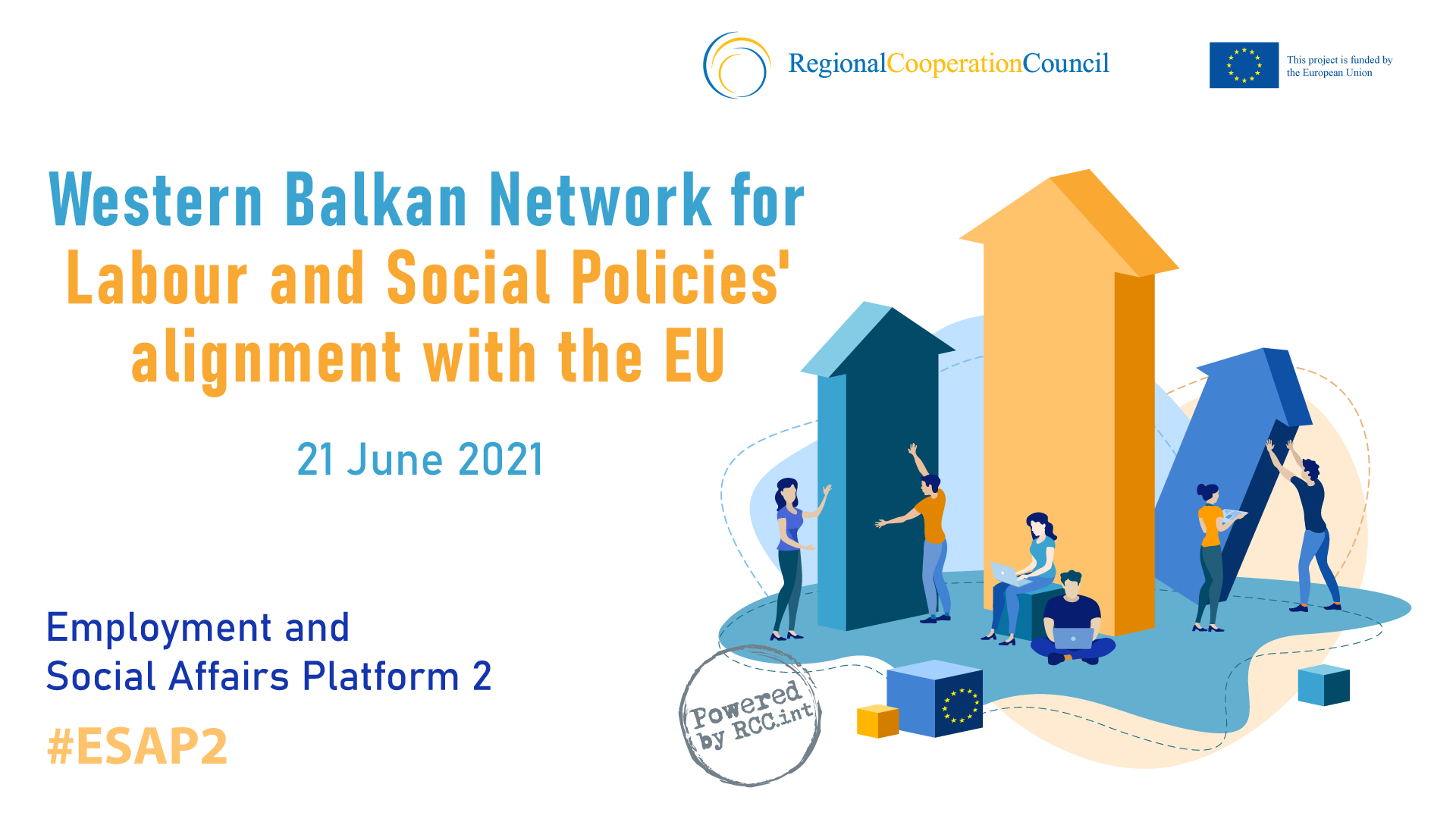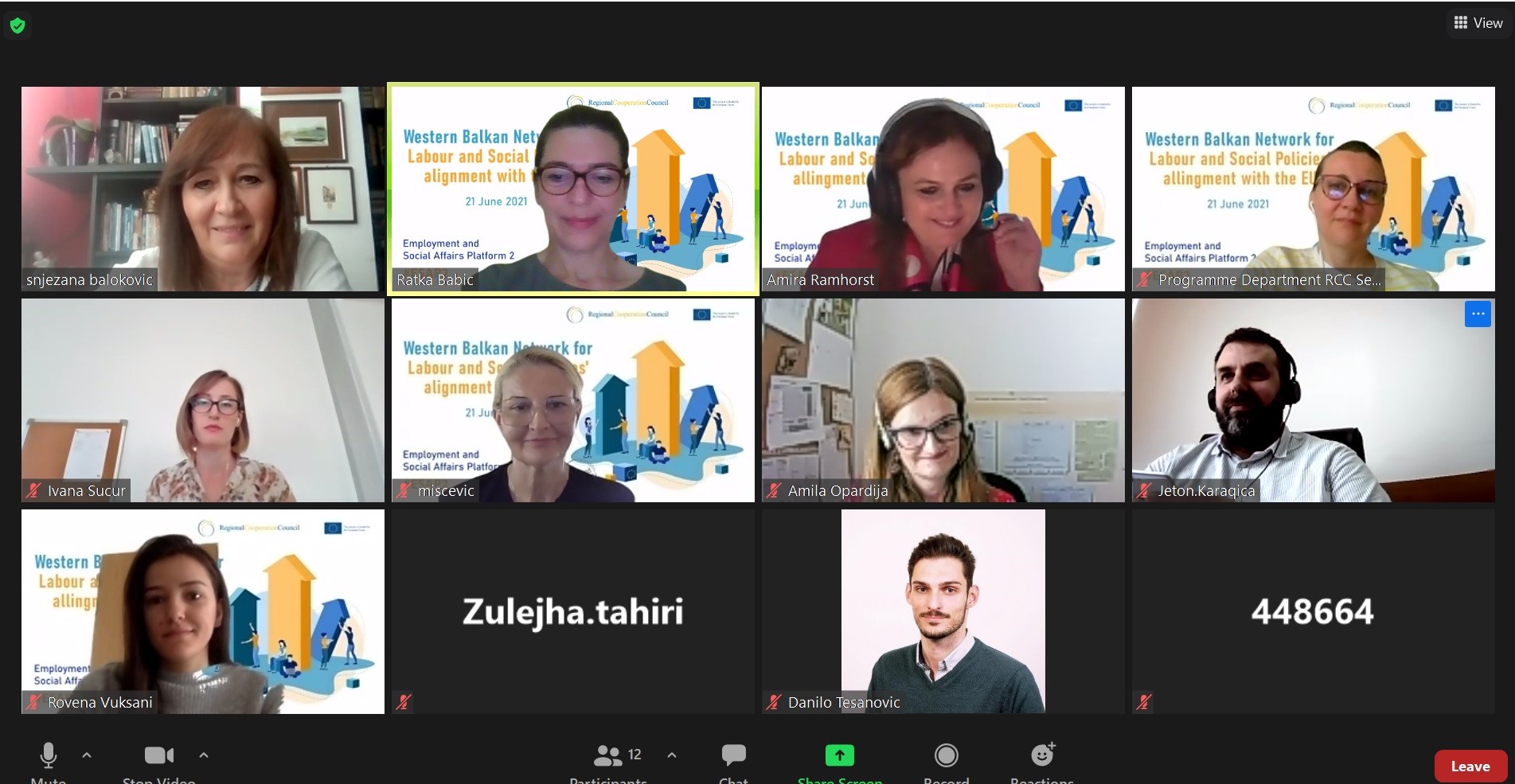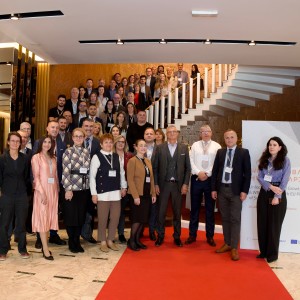News
21 June 2021 |News
RCC ESAP 2: Established 1st ever Western Balkans Network for Alignment with the EU Acquis: Advancing on the EU Accession Agenda by Mutual Learning and Capacity Building

Western Balkans’ Network focused on Employment and Social Affairs Policies and the alignment with the EU aquis

1st Ever Western Balkans Network on alignment with the EU acquis in the Chapters 2 and 19 and preparation for future use of European Social Fund , 21 June 2021 (Photo: RCC ESAP 2)
Western Balkan Network for alignment with the EU acquis in the Chapters 2 and 19 and preparation for future use of European Social Fund established under auspices of the RCC’s ESAP 2 Project
Sarajevo – “Jobs and social protection are a core issue for Western Balkan (WB) citizens. This is so in every-day lives, and more broadly in citizens’ expectations of what the EU accession process will bring to them and their families in terms of more and better jobs and social protection. The Covid-19 context has placed additional pressures on jobs and social protection, and in the pandemic these two issues have remained a core concern for citizens“, said Tanja Miscevic, Deputy Secretary General of the Regional Cooperation Councl at the online meeting today when Regional Network was established for six WB economies involving negotiators and civil servants for those where negotiation structure in regards to the EU still does not exist.
„It is my pleasure to see you gathered here today, as we all work on the EU accession Agenda. I believe this is a one of the first forums, albeit online, where we you will be able to exchange experiences with your immediate peers from the WB through first hand sharing and peer learning.“
The Network was established under the auspices of the RCC's Employment and Social Affairs Platform 2 Project (ESAP 2) and it is envisaged as an informal network, which will provide peer learning and capacity building activities on topics that will be identified and proposed by the Network participants themselves, as per their neeeds relevant to the EU accession, particularly themes concerning EU aquis Chapters 2 and 19,and the European Social Fund.
Chapter 2 of the EU aquis concerns freedom of movement for workers, providing opportunities for EU citizens from one member state to work in another, enjoying equal treatment as recipient-economy’s national workers, accompanied with adequate social security, while the Chapter 19 deals with social policies and employment includes minimum standards in the areas of labour law, equality, health and safety at work and anti-discrimination.
Snjezana Balokovic, the Lead ESAP 2 Expert who will be coordinating the gorup in the coming period sterssed the importance of having a regional Network, noting that the WB economies have different legislation (pension insurance/health insurance schemes/unemployment insurance systems, family benefits, labour legislation), all aiming at theirs alignment with the EU acquis. Balokovic added that despite the Network members being in in different stages in regards to the EU accession, they shared “the same goal of advancing the EU membership process, and would find it easy to communicate with the colleagues within the same area of responsibility and transfer of information".
This first meeting of the WB6 Network, hosted by Amira Ramhorst, ESAP 2 Team Leader brought together representatives of Western Balkan Ministries and/or other government bodies responsible for the EU accession process, with thematic focus on labour and social policies. The participants discussed the regional cooperation objectives within the Network and indicative plan of activities in the coming months.
Part of ESAP 2 project’s work concerns the engagement of the Western Balkans in the EU employment and social policies, by providing peer learning opportunities to enhance WB alignment with the EU acquis in relevant fields (Chapters 2 and 19), European Pillar of Social Rights, and preparation for the future use of European Social Fund.





